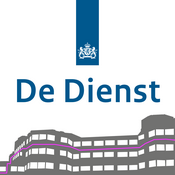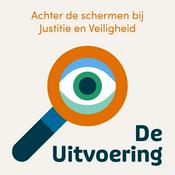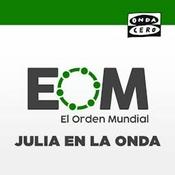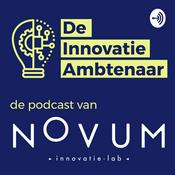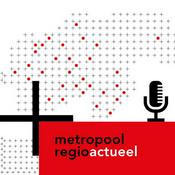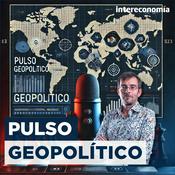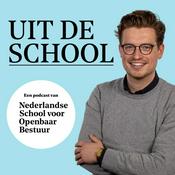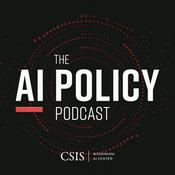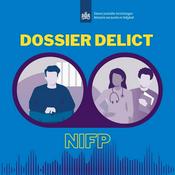10 afleveringen

Episode 9 - Entrepreneur Shafinaz Hossein on Engaging Young Innovators to Fix the Food System
28-8-2018

Episode 8 - Peruvian Civil Society Leaders Biaggioni and Salcedo on Fighting Malnutrition in the Midst of Plenty
21-8-2018
Two Peruvian activists join us today: chef Karissa Becerra Biaggioni who founded the NGO La Revolucion, which is all about educating children about real food, and Sandra Salcedo who initiated Sobremesa, an initiative led by women in the gastronomy sector to support the SDGs. We talked to them about retraining children’s taste buds, educating the Ministry of Education, making the industry step up to the plate and malnutrition in the midst of abundant availability of fresh produce.

Episode 7 - Nordea’s Thina Saltvedt Talks Green Investing
14-8-2018
<!-- /* Font Definitions */ @font-face {font-family:"Cambria Math"; panose-1:2 4 5 3 5 4 6 3 2 4; mso-font-charset:0; mso-generic-font-family:roman; mso-font-pitch:variable; mso-font-signature:-536870145 1107305727 0 0 415 0;} @font-face {font-family:Calibri; panose-1:2 15 5 2 2 2 4 3 2 4; mso-font-charset:0; mso-generic-font-family:swiss; mso-font-pitch:variable; mso-font-signature:-536870145 1073786111 1 0 415 0;} /* Style Definitions */ p.MsoNormal, li.MsoNormal, div.MsoNormal {mso-style-unhide:no; mso-style-qformat:yes; mso-style-parent:""; margin-top:0cm; margin-right:0cm; margin-bottom:8.0pt; margin-left:0cm; line-height:107%; mso-pagination:widow-orphan; font-size:11.0pt; font-family:"Calibri",sans-serif; mso-ascii-font-family:Calibri; mso-ascii-theme-font:minor-latin; mso-fareast-font-family:"Times New Roman"; mso-hansi-font-family:"Times New Roman"; mso-bidi-font-family:"Times New Roman";} .MsoChpDefault {mso-style-type:export-only; mso-default-props:yes; font-size:11.0pt; mso-ansi-font-size:11.0pt; mso-bidi-font-size:11.0pt; font-family:"Calibri",sans-serif; mso-ascii-font-family:Calibri; mso-ascii-theme-font:minor-latin;} .MsoPapDefault {mso-style-type:export-only; margin-bottom:8.0pt; line-height:107%;} @page WordSection1 {size:612.0pt 792.0pt; margin:70.85pt 70.85pt 70.85pt 70.85pt; mso-header-margin:36.0pt; mso-footer-margin:36.0pt; mso-paper-source:0;} div.WordSection1 {page:WordSection1;} --> Thina Saltvedt, formerly one of Norway’s most profiled oil analysts and now a senior advisor for Sustainable Finance at Nordea Bank, the largest banking group in the Nordic region, is our guest today. Thina talked to us about what prompted her career switch, why the financial industry needs to become more vocal on how it will contribute to global climate change mitigation and what lessons the food industry can learn from the transition the energy sector is undergoing.

Episode 6 - Tom Arnold and Emily Norford on the Malnutrition Cocktail Cities Are Serving
07-8-2018
<!-- /* Font Definitions */ @font-face {font-family:"Cambria Math"; panose-1:2 4 5 3 5 4 6 3 2 4; mso-font-charset:0; mso-generic-font-family:roman; mso-font-pitch:variable; mso-font-signature:-536870145 1107305727 0 0 415 0;} @font-face {font-family:Calibri; panose-1:2 15 5 2 2 2 4 3 2 4; mso-font-charset:0; mso-generic-font-family:swiss; mso-font-pitch:variable; mso-font-signature:-536870145 1073786111 1 0 415 0;} /* Style Definitions */ p.MsoNormal, li.MsoNormal, div.MsoNormal {mso-style-unhide:no; mso-style-qformat:yes; mso-style-parent:""; margin-top:0cm; margin-right:0cm; margin-bottom:8.0pt; margin-left:0cm; line-height:107%; mso-pagination:widow-orphan; font-size:11.0pt; font-family:"Calibri",sans-serif; mso-ascii-font-family:Calibri; mso-ascii-theme-font:minor-latin; mso-fareast-font-family:"Times New Roman"; mso-hansi-font-family:"Times New Roman"; mso-bidi-font-family:"Times New Roman";} .MsoChpDefault {mso-style-type:export-only; mso-default-props:yes; font-size:11.0pt; mso-ansi-font-size:11.0pt; mso-bidi-font-size:11.0pt; font-family:"Calibri",sans-serif; mso-ascii-font-family:Calibri; mso-ascii-theme-font:minor-latin;} .MsoPapDefault {mso-style-type:export-only; margin-bottom:8.0pt; line-height:107%;} @page WordSection1 {size:612.0pt 792.0pt; margin:70.85pt 70.85pt 70.85pt 70.85pt; mso-header-margin:36.0pt; mso-footer-margin:36.0pt; mso-paper-source:0;} div.WordSection1 {page:WordSection1;} --> Today we’re talking to Tom Arnold, Member of the Global Panel on Agriculture and Food systems for Nutrition, and EAT’s Policy Officer Emily Norford about how rapidly rising urbanization in low and middle-income countries is adversely affecting diets and health. We explore the role regulators, private sector and civil society can play to promote healthier urban food environments and what one can learn from measures introduced by cities like Copenhagen, Quito and Vancouver ranging from public procurement of organic food to urban agriculture programs.

Episode 5 - Chef Ali L’artiste Talks Breaking Food Barriers
31-7-2018
Ali Said Mandhry, popularly known as Chef Ali L’artiste – a Kenyan Celebrity Chef, TV/Radio personality and culinary instructor, is today's guest. Ali’s love of food came early: he began cooking at the age of seven and by the time he’d turned 12, he had his own business selling cakes. Today Ali champions Kenyan cuisine both nationally and internationally, and is part of IFAD's Recipes for Change campaign, which raises awareness about the impacts of climate change on food crops and traditional recipes. He came to the EAT Stockholm Food Forum as a representative of the Chef’s Network, a global network of chefs who are working to create a better food system for all. We talked to him about gender stereotypes in the culinary arts, breaking food barriers and empowering small-scale farmers.
Meer Overheid podcasts
Trending Overheid -podcasts
Over Food Can Fix It
Luister naar Food Can Fix It, The Lawfare Podcast en vele andere podcasts van over de hele wereld met de radio.net-app
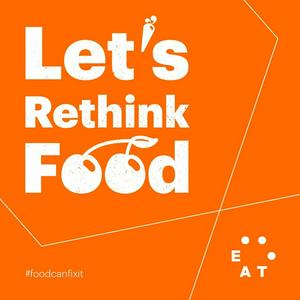
Ontvang de gratis radio.net app
- Zenders en podcasts om te bookmarken
- Streamen via Wi-Fi of Bluetooth
- Ondersteunt Carplay & Android Auto
- Veel andere app-functies
Ontvang de gratis radio.net app
- Zenders en podcasts om te bookmarken
- Streamen via Wi-Fi of Bluetooth
- Ondersteunt Carplay & Android Auto
- Veel andere app-functies


Food Can Fix It
download de app,
luisteren.



